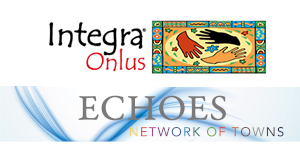EU PROGRAMMES AND INITIATIVES FOR SOCIAL INCLUSION AND VALORIZATION OF CULTURAL HERITAGE
Erasmus+
About the programme
Erasmus+ is the EU’s programme to support education, training, youth, and sport in Europe. It has an estimated budget of €26.2 billion. This is nearly double the funding compared to its predecessor programme (2014-2020).
The 2021-2027 programme places a strong focus on social inclusion, the green, and digital transitions, and promoting young people’s participation in democratic life. It supports priorities and activities set out in the European Education Area, Digital Education Action Plan, and the European Skills Agenda. The programme also
- supports the European Pillar of Social Rights
- implements the EU Youth Strategy 2019-2027
- develops the European dimension in sport
Opportunities
Erasmus+ offers mobility and cooperation opportunities in
- higher education
- vocational education and training
- school education (including early childhood education and care)
- adult education
- youth
- and sport
Citizens, Equality, Rights and Values Programme (CERV)
About the programme
This programme aims to protect and promote Union rights and values as enshrined in the EU Treaties and the Charter of Fundamental Rights. It will contribute to sustain and further develop open, rights-based, democratic, equal and inclusive societies based on the rule of law.
Creative Europe – Culture
About the programme
Creative Europe is the European Commission’s flagship programme to support the culture and audiovisual sectors. Creative Europe invests in actions that reinforce cultural diversity and respond to the needs and challenges of the cultural and creative sectors.
The main objectives of the programme are to
- safeguard, develop and promote European cultural and linguistic diversity and heritage
- increase the competitiveness and economic potential of the cultural and creative sectors, in particular the audiovisual sector.
European Solidarity Corps
About the programme
The European Solidarity Corps is the new European Union initiative that creates opportunities for young people to volunteer or work in projects in their own country or abroad that benefit communities and people around Europe.
The aim of the European Solidarity Corps is to give 18‑30 year olds the chance to take part in a range of activities to help those impacted by challenging situations across the EU. Participation will not only benefit those providing the help but also assist national and local authorities, non-governmental organisations and companies in their efforts to cope with various challenges and crises.
EU POLICIES AND PROGRAMMES FOR ACTIVE PARTICIPATION
Have your Say!
About the programme
You can have your say on Commission initiatives and by doing so, help to fine-tune preparatory work on EU legislation at different stages of the process. Roadmaps, draft acts, proposals, and adopted acts are usually open for feedback periods of 4 weeks.
A key way to do this is to reply to one of the public consultations that the Commission launches in order to gather more specific input on planned initiatives through detailed questionnaires. Most consultations are open for 12 weeks. The Commission will consider your views when it is developing policy and legislation.
Suggest how to improve EU laws
At any time, you can also suggest ways to improve an existing EU law to make it more efficient and effective. A panel made up of experts from each EU country will examine your proposal. The panel, known as the ‘REFIT platform’, includes representatives from businesses and civil society organisations. It may make a recommendation to the Commission based on your input. If it decides not to make a recommendation, it will write to you to explain why not.
European Citizens’Initiative
About the programme
A European citizens’ initiative is a way for you and other Europeans to take an active part in EU policy-making. If you want the EU to take action on a particular issue, you can launch a citizens’ initiative calling on the European Commission to propose new EU legislation on that issue. For an initiative to be considered by the Commission, you need to get 1 million citizens from across the EU to sign it in support.
More information: https://europa.eu/citizens-initiative/_en
European Elections
Citizens’Dialogue
About the programme
Citizens’ Dialogues are public debates with European Commissioners and other EU decision-makers, such as members of the European Parliament, national, regional and local politicians.
The events take the form of a question and answer session. It’s your chance to ask EU politicians questions, make comments and tell them how EU policies affect you. You can also share your ideas on the future of Europe.
Held in cities across the EU, the sessions are free to attend and many are broadcast live online.
Petitions
About the programme
Any individual or organisation based in the EU can submit a petition to the EU on an issue related to EU policy or law.
When to submit a petitions
You can ask the European Parliament to look into an issue that affects you, or complain about how an EU law is being applied. This is called a petition.
The European Parliament will look into the issue and will write back to you with its findings.
Who can start a petition?
- any EU citizen
- anyone living in an EU country
- any company, organisation or association with its headquarters in an EU country
Your petition must concern one of the EU’s policy areas.
You can submit your petition individually, or as a group. There is no minimum number of signatures.
